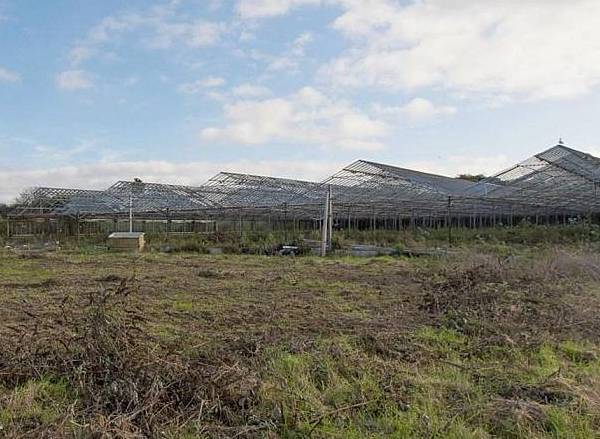


Deputy Steve Falla is urging Policy and Resources to look at the potential of derelict glasshouse sites to help tackle the housing crisis.
In the principal committee’s update at the March States meeting its president, Deputy Peter Ferbrache, called for a “radical” approach to the housing crisis, including establishing a public/private task force to tackle the issue.
Deputy Falla believes that could include a review of redundant glasshouse sites which could hold the key to unlocking more land for building. He had considered bringing an amendment, to put derelict glass within the scope of the Development & Planning Authority’s Section 46 debate on unsightly properties, but was persuaded against it because the Authority said it could not provide the resources to make this a priority of its mandate:

Pictured: Old greenhouse sites which could be redeveloped for housing under Deputy Falla's idea.
“I was greatly encouraged to hear Deputy Ferbrache say that he intends to form a task force of politicians and building and construction professionals to identify sites for potential development. This is exactly what I had hoped for from the now defunct Housing Action Group.
I’m disappointed that it hasn’t happened yet, but I’m encouraged by this new declaration of action.
I’d like to think that P and R has the levers to pull together the relevant stakeholders in order to cut red tape and to act decisively on housing, even if this means changing or relaxing, even temporarily, some of the laws that seem to be responsible for the inertia.
The DPA’s 2020 annual monitoring report showed that in 2019 there were approximately 75.5 hectares of redundant glass in the island and stated that the clearance of derelict glass had slowed since 2017.
I’m not saying that all derelict glass on the island could be turned over to housing but I’m fairly certain that some of it could without a significantly detrimental effect on the landscape.
The limited development of old glass currently allowable under planning policy OC7 has made very little impact on the plethora of unsightly, unused and sometimes dangerous sites scattered across the island and not just in the North. Many, if not most, will never again be used for growing for several reasons.“We are short of open space, not least for building much-needed social and private housing.
In the past the clearing of disused glass was offered free of charge by a work force of job seekers and prisoners via the now defunct Environment 2000 scheme.
I appreciate that some 20 years later we live in very different times in terms of lower unemployment, a different approach to the rehabilitation of prisoners and the lack of resources to supervise such a scheme. But, I believe, with the right incentives in place - carrots rather than sticks, there is every likelihood that valuable sites could be provided on some of this land, subject to sensible conditions.
At the March States meeting we agreed, in principle, to building 313 new units of accommodation every year for the next five years but who is going to build them and where are they going to go?
There are multiple challenges surrounding this but, rather than citing all the reasons why we can’t build on some former glasshouse sites, let’s put what is necessary in place, through the collaboration of relevant committees, to ensure that we can.”